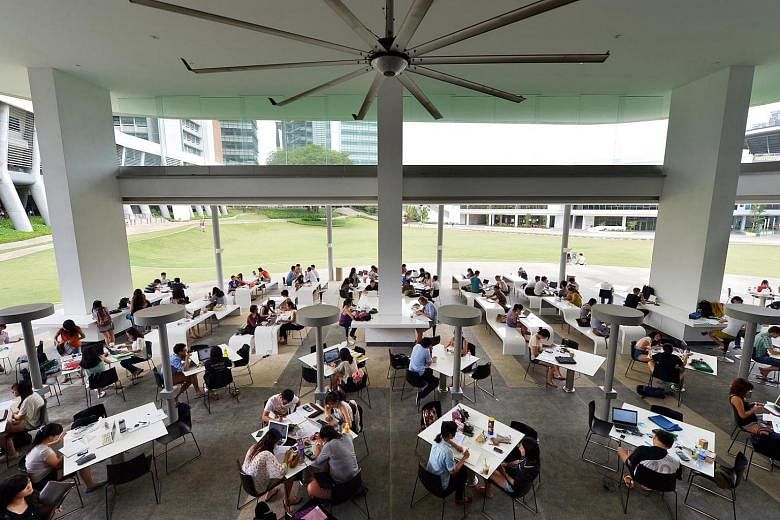SINGAPORE - The Auditor-General has signalled his concern over weak governance of public funds in several government agencies, and "lax" oversight of external entities tasked to administer schemes and loans.
These weaknesses in governance were set out in the latest annual report of the Auditor-General's Office (AGO) released on Tuesday (July 26).
Most notable was poor oversight found in Ministry of Education (MOE) funded tuition fee loans, study loans and scholarships which are administered by the Nanyang Technological University (NTU) and the National University of Singapore (NUS).
The AGO found inadequate controls to ensure that tuition fee loans and study loans due - amounting to over $228 million as of June 30 last year - were promptly recovered.
The universities rely on outsourced agents to monitor and recover the loans, and AGO found numerous instances where loan-recovery and follow-up actions on default cases were not taken in a timely way. MOE also did not follow-up promptly on long outstanding loans highlighted by outsourced agents.
"Such control weaknesses would adversely affect the recoverability of the loans and increase the risk of loss of public funds," the AGO said.
MOE also did not maintain adequate oversight of NUS and NTU on the monitoring and enforcement of scholarship bonds for a scholarship scheme that disbursed $36.52 million in financial year 2014/2015, the report added.
In 16 of the 30 cases that it checked, AGO found that the universities did not take prompt action on scholars who failed to serve their required bonds.
"As a result, there was no assurance that the scholarship grants were used optimally," it said of the grants, which are given to international students.
The AGO also highlighted a long delay over MOE's review of agency fees payable to banks for administering tuition fee loans and study loans, six years after it had raised an audit observation on the inadequacy of the fees formula.
As of June 30 last year, the outstanding balance of tuition fee loans and study loans given to students in Institutes of Higher Learning stands at over $511 million.
AGO had flagged in 2009 that the current formula does not incentivise the banks to put in their best efforts to recover outstanding loans, given that fees due to the banks is a percentage of outstanding loan balances.
Any recovery or write-offs of outstanding loans would therefore reduce the outstanding balance, and thus the amount of agency fees payable to the banks.
MOE said it would review the fees formula with the banks, and provided target dates for completing the review each time AGO followed up with MOE for status updates since 2010.
"AGO noted that the target dates had been postponed several times," said the latest report. "As at March 2016, the review had not been completed."
Responding to the report, MOE said in a statement that the majority of students in tertiary institutions who take loans are Singaporean citizens, and the tuition fee loan and study loan schemes "ensure they do not miss out on tertiary education because of financial constraints".
It added that it is working closely with the universities and banks to ensure prompt follow-up of loans in arrears, and assess each outstanding loan individually, including the borrower's financial circumstances.
"In cases where the delay in loan repayments is due to instances such as the borrower facing financial difficulty, MOE may allow the borrower to defer the monthly loan instalment repayment or reduce the monthly instalment payable temporarily," it said.
On scholarship bond-breaking, MOE said most of the cases flagged by the AGO were from earlier graduating batches, and that it has tightened and enhanced processes in monitoring and enforcing scholarship bonds in the last few years.
Since the enhanced measures were implemented, 95 per cent of international scholarship recipients are fulfilling their obligations or have applied for deferment, it said.
"For scholars who intentionally default, we will recover liquidated damages with interest from them, failing which defaulters will not be able to work or reside in Singapore," said the ministry.
MOE also acknowledged that the review of agency fees has taken longer than desirable, and is "expediting the review".


